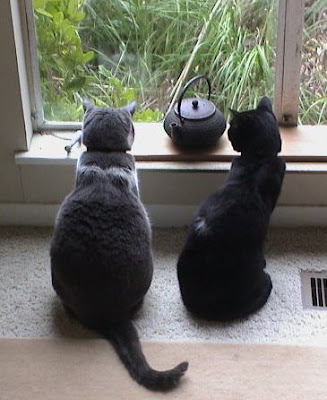These patterns - infused with attitude, bias and ideology - communicate through pattern-texts. In these pattern-texts can be found the ideology of the building (though not necessarily that of the architects).
The pattern can be understood to be the solution to a problem. For example, a problem may be how to get light to a person in a building. The solution could be a window. The window is the pattern.
Puck and Coal enjoy the view of Mill Valley (well the birds, actually).
Underlying this pattern is an assumption about human needs. And the needs that are acknowledged reveals a whole lot about how people analyze people. Some lists of needs the result of unrelenting measurability, reveal a commitment to scientific rationalism and others a more holistic system of analysis.
So there is a perspective – an ideology – attached to a pattern that will be determined by how the problem is defined. Is the problem to get light to a person because a person needs a certain number of lumens to read by, or is the problem to get light to the person so he can see what he is doing AND to provide him with the choice of seeing a view and seeing that light in itself is beautiful? The former advocates scientific rationalism as the tool for defining needs. The later acknowledges the measurable needs but also advocates seeing needs that cannot be measured with anything other than the artful application of intuition and wisdom.

No comments:
Post a Comment